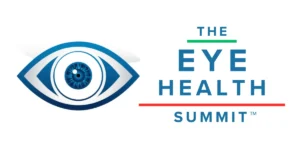 It’s that time of the year again! We recently set the clocks ahead and besides losing more sleep, many Americans will be gaining more headaches! Medical studies show that a disruption in sleep patterns caused by time changes, can trigger migraines. Headache Specialist Dr. Fred Cohen of the Mount Sinai Medical System in New York is with us to offer some tips to clean up your sleep routine and ease time-change headaches. Here’s information about Dr. Cohen.
It’s that time of the year again! We recently set the clocks ahead and besides losing more sleep, many Americans will be gaining more headaches! Medical studies show that a disruption in sleep patterns caused by time changes, can trigger migraines. Headache Specialist Dr. Fred Cohen of the Mount Sinai Medical System in New York is with us to offer some tips to clean up your sleep routine and ease time-change headaches. Here’s information about Dr. Cohen.
- I’m one of the few headache specialists in the U.S. trained in both Internal Medicine and Headache Medicine.
- I’m based in NYC at the world-renowned Mount Sinai Health System where I serve as Assistant Professor of Medicine and Neurology at the Icahn School of Medicine.
- I’m also Assistant Editor of Headache: The Journal of Head and Face Pain and Current Pain and Headache Reports.
- I’ve published countless articles in various medical and consumer journals.
- My research and expertise have made him a highly sought after presenter at headache conferences around the world.
- On a personal level, I’ve been a life-long headache sufferer, so I understand the detrimental effect of head pain on work, daily activities, and overall well-being.
How many people suffer from headaches and how are they typically treated?
- The total number of headache and migraine sufferers has swelled to more than 52 million people in the U.S. alone!
- The first step to reducing headaches is a trip to the doctor to identify the type of headache and thus the best remedy.
- Common medications to take while experiencing an actual headache or migraine include over-the-counter pain relievers, like acetaminophen, ibuprofen.
- Migraines are also treated with Triptans, a class of drugs that can balance chemicals in the brain to reduce the inflammation and tightening of blood vessels.
- Currently, two popular FDA-approved prescriptions offering migraine relief are Gepants with brand names UBRELVY® and Nurtec ODT® that can stop migraine pain signals.
- Preventative migraine treatments include oral blood pressure, depression and anti-seizure and anti-epilepsy medications.
- Also, injectable medications that use a neurotoxin to temporarily prevent muscle contractions and block pain signals in the brain, are OnabotulinumtoxinA, also known as Botox® which which can offer relief for up to three months.
- Additionally, IV infusion therapies like Ajovy or Vyepti can alleviate the onset of a migraine to a patient who receives the medication dosage 3 or 4x per year.
What’s the cause of this large number of people suffering from headaches and migraines?
- Weather conditions, environmental factors such as climate change and overall global warming are recognized triggers for some types of headaches.
- Stress, depression, and anxiety are also common culprits of migraine attacks since that can lead to tense muscles in the head, neck or jaw, resulting in a tension headache, or cause a migraine.
- Hormonal changes in women, foods and beverages, and sensitivity to light or smells can bring about a headache or migraine.
- The recent change of seasons not only affects the weather, it alters our bodies’ circadian rhythm or internal clock.
- Of course, turning back the clock in autumn from daylight savings time can also affect headaches from sleep disruptions.
- Poor/inadequate sleep is one of the most common causes of headaches and are commonly missed and not treated.
Tell us more about the sleep disruption/migraine connection….
- There have been recent studies by the American Academy of Neurology that show specifically that changes in sleep habits, not just a decrease in sleep, can trigger a migraine attack.
- There have been many theories to why, but the main component comes back to melatonin.
- Melatonin has been linked to having effects on various neuro-peptides, including ones related to migraine attacks such as Calcitonin gene-related peptide (CGRP). Throughout the day, our brains use neuro-peptides to function. These peptides then turn into waste by-products that are pro-inflammatory.
- Sleep serves as our brain’s way of ‘cleaning itself. When we sleep, our brain removes these waste products. Sleep deprivation can lead to the accumulation of these by-products, and result in more headache/migraine attacks.
What should a person do if they are experiencing sleep deprivation?
- First and foremost, it should be determined if a sleep disorder, such as sleep apnea is present through a sleep study.
- Ask yourself: do you snore or do you find yourself waking up throughout the night?
- Insomnia and sleep bruxism (grinding your teeth at night) have also been correlated with headache and migraine attacks.
- If no other conditions are present, improving your sleep hygiene is the first step to improving your sleep.
What are some tips to regulate your sleep routine and ease time-change headaches?
- Maintain a regular bedtime: avoid marked variations in bedtime and awakening (even on weekends)
Listen to Dr. Cohen and Mark here:



